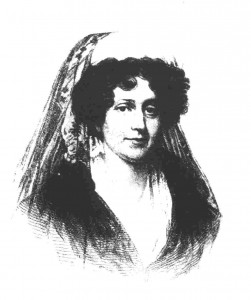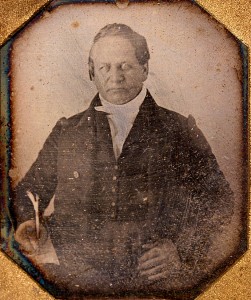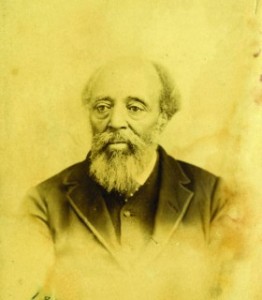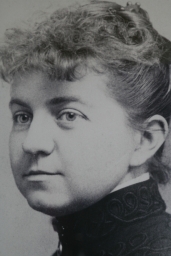Emma Willard opened a Female Seminary in her home, writing around that time, “My neighborhood to Middlebury College made me bitterly feel the disparity in educational facilities between the two sexes; and hoped that, if the matter was once set before the men as legislators, they would be ready to correct the error” (quoted in Stameshkin Vol. 1; 117). When she asked President of the College Henry Davis if she might learn the school’s methods by observing classes and if her students might be able to audit classes he told her that such a request was “unbecoming.” Undeterred by such condescension and growing increasingly aware of sexism within education in the US, Willard left Middlebury and went on to establish a school in New York and write her famous ‘Plan for Improving Female Education’. Though she did not return to Middlebury, she did give funds to the school once they began to admit female students in the late 1880s.
Alexander Twilight, often touted by the Middlebury administration as the first Black student in US history to receive a college degree, was likely admitted to Middlebury College because he “passed” as white. This says more about the bigotry of the administraiton and trustees at the time than Twilight’s qualifications as a scholar. As Stameshkin puts it, “[I]t is strange that not one biographical sketch of Twilight mentions his race, although the legend remains (and it is most likely true) that he was born ‘black'” (305). Given the fuss that occurred in the 1840s over the school’s admittance of Black student (and its subsequent rejection of a group of Black students from Philadelphia due to its one-Black-student-at-a-time quota), it is likely that the school accidentally graduated a Black scholar and has since revised history. Twilight — who had been indentured for some period of time before attending Middlebury College and who worked his way through his two years at the school — ended up the first African American elected to a state legislature and became an educator and founder of many schools across the Northeast. While at Middlebury, Twilight was selected to give the salutatorian address at his commencement ceremony.
Martin Freeman
Martin Freeman, the only black student at Middlebury between 1840 and 1880, matriculated in the fall of 1845. Given the fact that Alexander Twilight (’23) apparently “passed” as white during his time at Middlebury, Freeman was considered to be the first black student to attend Middlebury College. Around the same time as Freeman began school at Middlebury, the administration refused to admit a group of black students from Philadelphia when an abolitionist wrote to them with said request. As Stameshkin writes, “President Labaree and the Middlebury trustees were opposed to admitting more than one black student, for fear of scaring away white students” (Vol. 1; 318). Though the Middlebury administration’s racism restricted to access for many, Martin Freeman’s attendance at the school and alumni status shifted the notion of who could be a Middlebury student. He was selected to give a salutatorian speech at his commencement and went on to be the first Black president of an American College before moving to Liberia and continuing his work in higher education. For more on his life, please read Robert Buckeye’s ‘The Mind of Winter: The Life of Martin Freeman’ (2009).
May Belle Chellis, winner of a Waldo Prize for academic excellence and first in her class, graduated as the first woman to receive a Middlebury College degree. On this historic moment the student newspaper reported, “The appearance of Miss Chellis called out the warmest applause. The question of the day had been, will the trustees allow her to appear… When the class was formed on the stage to receive their diplomas, as she received hers, the audience testified their appreciation of the action of the trustees, also for the pluck and gut shown through the course by the first lady graduate of old Middlebury” (Vol. 1; 218). This was a historic moment in Middlebury’s history. Not only was a woman graduating despite the sexism prevalent both on and off campus at the time, but she was graduating first in her class and she was being supported by many others in her community. When the women students pushed to be able to speak publicly with the male students, the male editors of the campus newspaper (then called The Undergraduate) publicly offered their support. It was a time of students challenging the structures that prevented female empowerment and equity.



